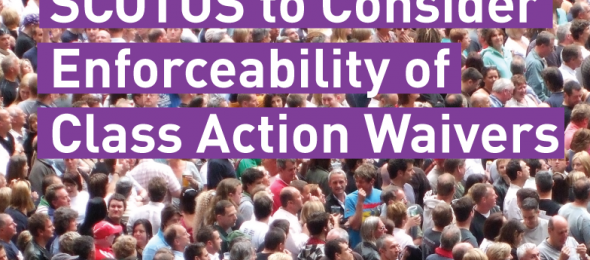Tomorrow, the United States Supreme Court will hear oral arguments in American Express Corp. v. Italian Colors Restaurant, et al. (No. 12-133). The appeal from the United States Court of Appeals for the Second Circuit addresses whether the Federal Arbitration Act allows a court to invalidate an arbitration agreement that does not permit class arbitration of a federal law claim.
In the case, a number of small businesses, including Italian Colors Restaurant, accuse American Express of violating federal anti-trust law because the company allegedly forced them to accept credit cards with high transaction and other fees in order to accept American Express as a customer payment option. Although each of the merchants reportedly agreed to arbitrate any dispute with the company and the parties’ arbitration agreement does not permit class arbitration, several class action lawsuits were eventually filed. In the class action lawsuits, the merchants argued that obtaining individual arbitral awards would be cost prohibitive and would effectively deny each company’s rights when compared with the potential for recovery.
In 2003, the class action cases were consolidated in the Southern District of New York. The district court reportedly ordered the disputes to bilateral arbitration. The merchants appealed the case to the Second Circuit. The Appeals Court overturned the lower court’s order by stating the class action waiver was unenforceable. In addition, the Second Circuit reconsidered and reaffirmed its own holding after the Supreme Court’s decision in both Stolt-Nielsen S.A. v. AnimalFeeds Int’l Corp. and AT&T Mobility LLC v. Concepcion. Last May, the Second Circuit also denied a request for rehearing of the case en banc.
In the company’s appeal to the Supreme Court, American Express argues that the appellate court’s decision directly conflicts with the high court’s holding in Concepcion. In that case, the Supreme Court held a California law stating a class action waiver in an arbitration provision was unenforceable directly conflicted with the Federal Arbitration Act. In addition, American Express argues the Supreme Court previously considered and dismissed the merchants’ argument that a class arbitration waiver would make it impossible for them to vindicate their rights.
This case will be the third time in three years the high court has considered the scope of a class action waiver in an agreement to arbitrate. Stay tuned to Disputing for more about this fascinating case!














